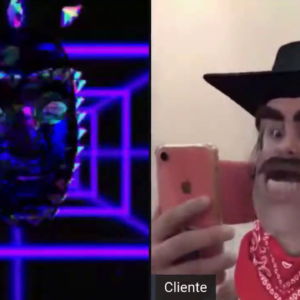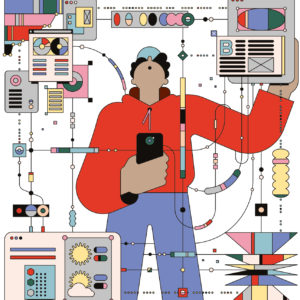Instead of delivering an invited talk in the UTFPR’s Informatics student week of 2021, Rodrigo Fresse Gonzatto, Claudia Bordin Rodrigues, and Frederick van Amstel performed an invisible theater on artificial intelligence in higher education.
In this kind of performance, actors stage the play without telling the audience that they are acting. They pretend to be real like in a prank. However, differently than a prank, they do not seek to lure the audience into an awkward situation. The goal is to present a real conflict that requires the audience to take a position and join a public debate. In this case, the conflict centers around artificial intelligence applications that may or may not replace human teachers in higher education.
Visual summary

Plot summary
The play begins with the first actor presenting his concept of artificial intelligence in higher education. He was supposed to deliver a talk on computer-mediated oppression at the student week event but, instead, he delivers an apology for a neutral all-too-good educational technology. The actor wears a cartoonish augmented reality face without explaining why he does so. Since the filter performs subtle changes in his face that make him appeal as silly as his discourse, there is no questioning of that, even from the event organizers.
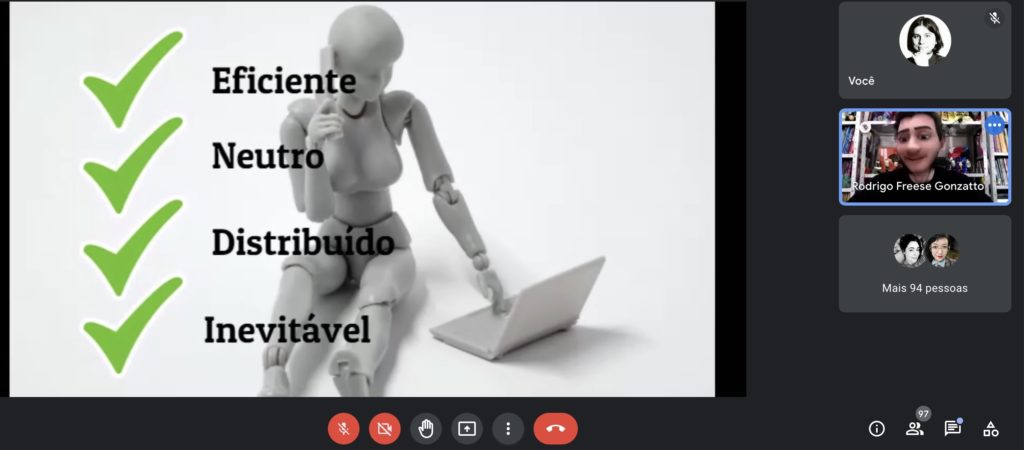
After the presentation is done, the speaker asks if anyone wants to raise a question. The second actor opens up the camera as if she was part of the audience and starts criticizing the concept just presented. The actor draws attention to the digital exclusion that Brazilian higher students suffered during the pandemic. She believes that replacing human teachers with artificial intelligence tutors would not result in better learning outcomes as presented by the first actor but in more digital exclusion.
Her presentation is suddenly interrupted by a staged technical failure that raises the expectation for conflict resolution.

The third actor shows up dressed as a Google representative and explains that the technical failure was caused by a copyright infringement. Google recently changed its terms of use and now any slides created with Google Slides was owned by the company and could not be presented in public. The actor wore Google goggles that revealed his theatrical intentions. After realizing that they were seeing a theater play, the audience ramps up in the chat box to discuss the issues raised.
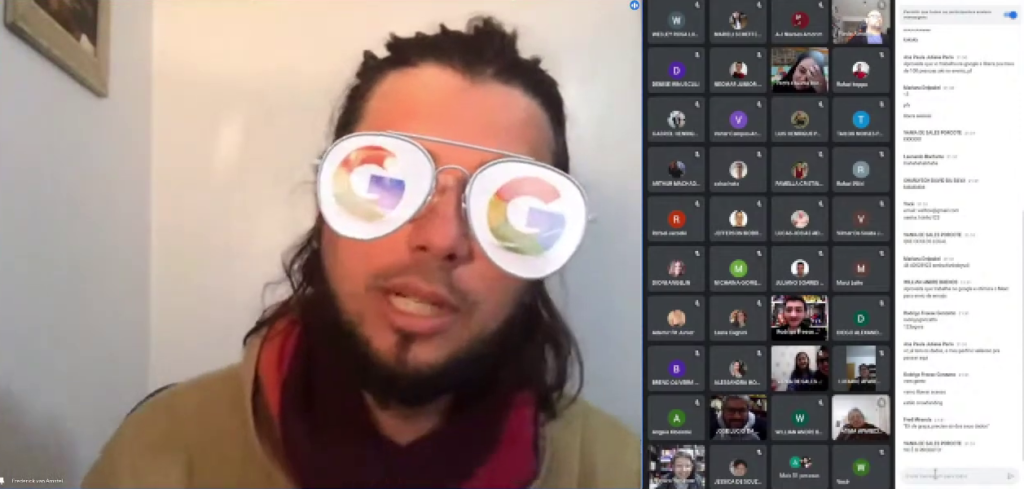
While the characters discuss whether Google owns the slides and can interrupt a presentation, the audience chats about the hidden costs of free services like Google Suite for Education. The Federal University of Technology Paraná relied upon this service for hosting events like these and also for delivering classes during the pandemic. At this moment, the students realized the actors’ intent to raise critical consciousness on the use of a foreign private digital service in Brazilian public education.
The Google representative manages to turn back the discussion to the artificial intelligence concept presented by the first actor. He mentions that the company has a startup acceleration program focused on educational technologies that can invest in the concept provided that there is a running prototype already. The first actor presents his prototype as an artificial intelligence agent that can have a natural conversation with its users in the same conference environment. The second actor now wears an augmented-reality HUD face filter to perform the role of the AI agent, which can replace human teachers in several higher education activities.
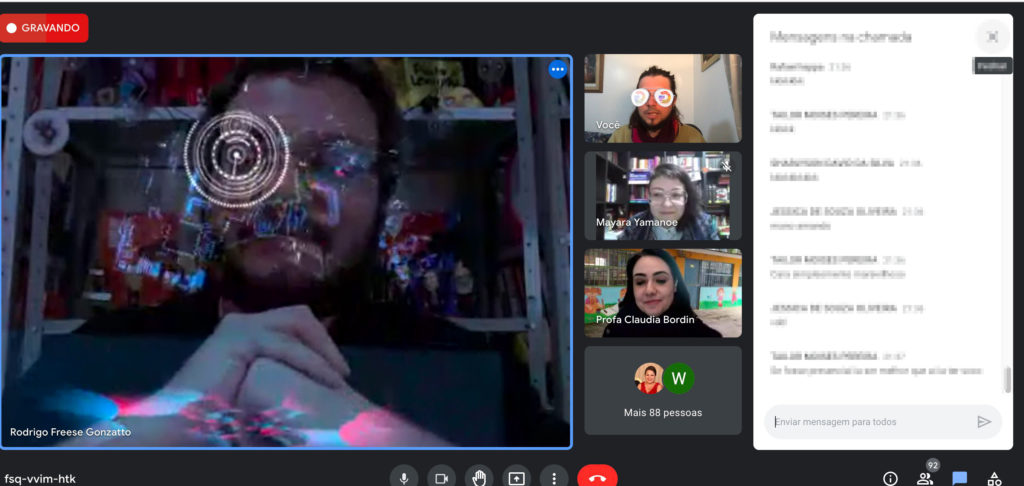
The audience asks several questions about the ethical, political, and pedagogical issues of implementing such technology in the chat box. The other actors pick up some of the text comments and state them back to the AI agent. A heated discussion takes over until the second actor decides to exit the conference environment, followed by the other two.
The actors return to the stage and explain that the audience had just experienced an invisible theater play focused on Brazilian public universities’ over-reliance on Google Suite. The students had the opportunity to reflect on the political and educational implications of using these technologies, even if they are offered for free. Furthermore, they could see more from the social context that generates discourses on artificial intelligence in higher education.
